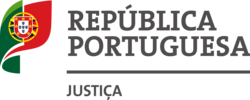XXII Constitutional Government of Portugal XXII Governo Constitucional de Portugal | |
|---|---|
| Cabinet of Portugal | |
 Prime Minister António Costa | |
| Date formed | 26 October 2019 |
| Date dissolved | 30 March 2022 (2 years, 5 months and 4 days) |
| People and organisations | |
| President of the Republic | Marcelo Rebelo de Sousa |
| Prime Minister | António Costa |
| No. of ministers | 19 [a] |
| Member party | Socialist Party (PS) |
| Status in legislature | Minority |
| Opposition parties |
|
| History | |
| Elections | 2019 Portuguese legislative election (6 October 2019) |
| Legislature term | 14th Legislature |
| Predecessor | XXI Constitutional Government |
| Successor | XXIII Constitutional Government |
| ||
|---|---|---|
Personal  | ||
The XXII Constitutional Government of Portugal (Portuguese : XXII Governo Constitucional de Portugal) was the 22nd government of the Third Portuguese Republic, under the current Constitution. It was established on 26 October 2019 as a Socialist Party (PS) minority government, led by Prime Minister António Costa, and ended on 30 March 2022.








































